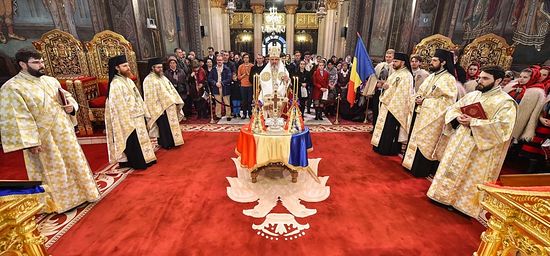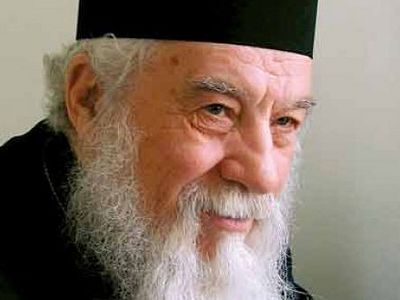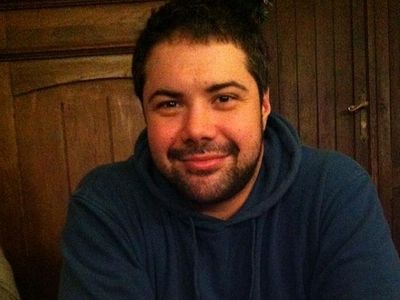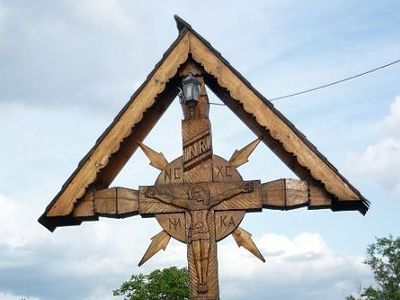Source: Basilica News Agency
December 1, 2015
On Tuesday, December 1, the "National Day of Romania," a Te Deum service was celebrated in the Patriarchal Cathedral of Bucharest, according to Church tradition and the decision of the Holy Synod.
The service was celebrated by His Beatitude Daniel, Patriarch of the Romanian Orthodox Church, assisted by a group of priests and deacons. The liturgical respones were given by the Tronos psaltic chorus of the Patriarchal Cathedral.
At the end of the Te Deum, His Beatitude Patriarch Daniel delivered a homily entitled "Let us reaffirm the high esteem and love for the Romanian people:"
On the National Day of Romania the high esteem and love for the Romanian people must be particularly reaffirmed. In this sense, we must, through prayers, solidarity and good deeds, alleviate the suffering of those affected by the fire at Colectiv Club in Bucharest. We must also offer a greater contribution to promoting the spiritual and intellectual education of our children and young people, so that they may more efficiently apprehend the relationship between intellectual knowledge and concrete daily life. At the same time, the Church must contribute to keeping and cultivating the gift of the good spiritual and physical health of the people, by treating the sick in its medical establishments and extending the programs: “Donate blood! Save a life!” and “Good health for villages,” as well as the programs of preventive medicine designed to help people avoid various diseases. Special care must further be taken in maintaining a Romanian identity and spirituality in the life of Romanian people living abroad, in the Romanian diaspora.
Before the Te Deum service the Divine Liturgy was celebrated in the Patriarchal Cathedral wherein the heroes of the Romanian people who achieved the national unity of the Romanians 97 years ago, in 1918, were commemorated.
The Romanian Constitution stipulates that December 1 is the National Day of Romania, in memory of over 100,000 Romanians gathered at Horea’s Field in Alba Iulia, who asked for the Union of Transylvania with the country. The Great National Assembly, consisting of 1228 delegates, adopted a decree that endorsed the Union of all Romanians from Transylvania, Banat (the territory between the rivers Mureş, Tisa, and Danube) and the Hungarian lands (Crişana, Sătmar and Maramureş) with Romania.




